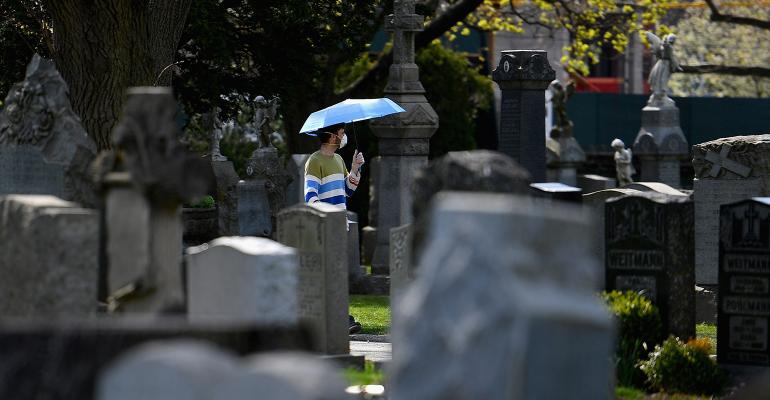A lot has been written about the general, and somewhat worrisome, consensus that most Americans don’t have their estate-planning documents in place. Amid the ongoing COVID-19 pandemic, there appears to have been an awakening among the general public of various ages and backgrounds to get their estate planning in order. Indeed, many attorneys I’ve spoken with have confirmed this, noting the uptick in clients who are urgently seeking to get a will in place, along with other documents, such as health care directives. And though estate planners and advisors are likely grateful for the new workload and opportunity to provide their expertise, the events leading up to this increase in business are unfortunate.
Virtual Estate Planning
As firms adjust to the nationwide social distancing requirements, they’re facing some changes in how they go about their practice. For example, a large swath of states have now passed executive orders allowing for virtual notaries to allow for documents to be executed remotely. Despite these accommodations, Raymond C. Radigan, Head of Private Trust at TD Wealth, notes that there are still some curves in the road to adapting to a virtual office. For example, the planning process is taking some extra time, as minute details now require extra steps such as clients scanning in signatures on documents to then send back to their attorneys. Other concerns also exist, Radigan continued, “capacity can be much harder to determine over the phone, as can undue influence.” He explains that, for example, a particular child having an undue influence on his older parent is much more recognizable in person, when you can get a better feel for the dynamic between that individual and the client. More complex estates, such as those with non-traditional assets such as art collections, may also face some difficulties, for example, getting an appraisal at this time.
Are there Risks?
Given that panic is a large motive in this rush for getting a will in place, can these so-called “panic wills” potentially pose a risk to the client? Though now thrust into somewhat uncharted territory of operating remotely, estate planners still have their ethical obligations to abide by, and Radigan believes that most attorneys are still taking the necessary time to execute documents and not hastily churning out will after will. However, another potential concern exists for those clients who are turning to online platforms for their documents. For one, online estate planning doesn’t come with the nuanced advice of an estate planner, and it’s possible clients, especially ones with more complicated estates, can end up with invalid wills that won’t hold up in court. Furthermore, some clients may not be aware that documents are state specific.
Despite the risks, Radigan says that in most cases, individuals are still better off with online provider drafted documents than with no will at all, especially if “the intended beneficiary is someone beyond immediate relatives and the individual has zero will in place.” There’s also an upside to planning now, with the current state of the economy providing some ample gifting opportunities, something that many clients may want to take advantage of.





